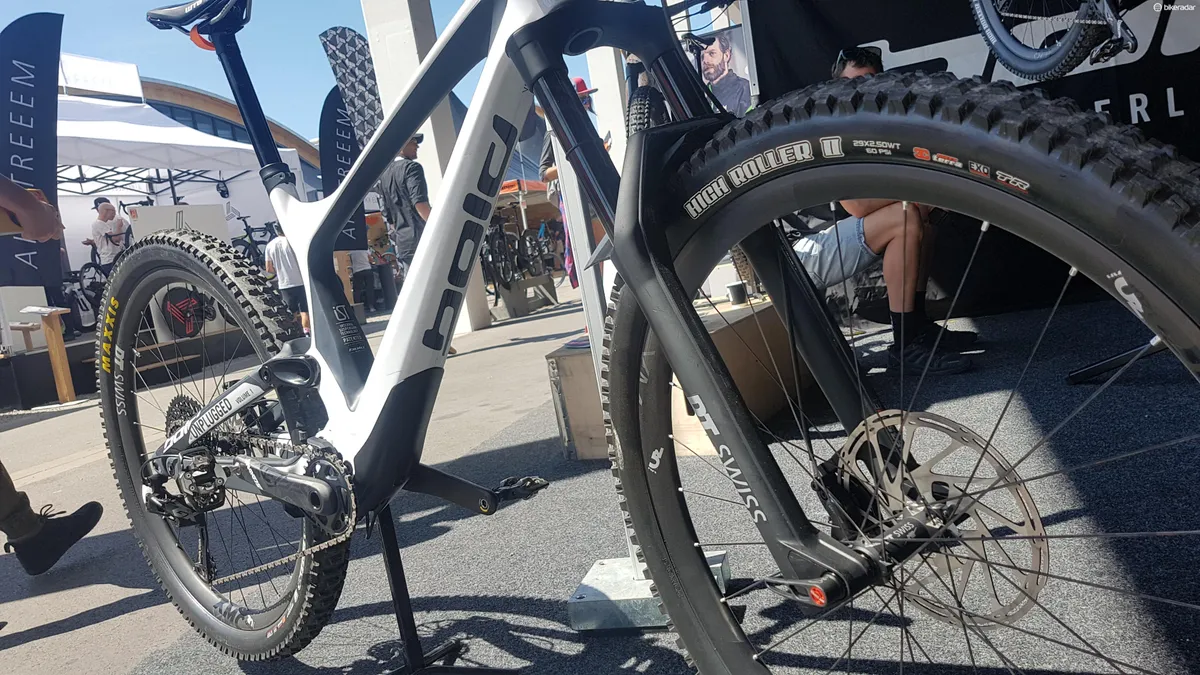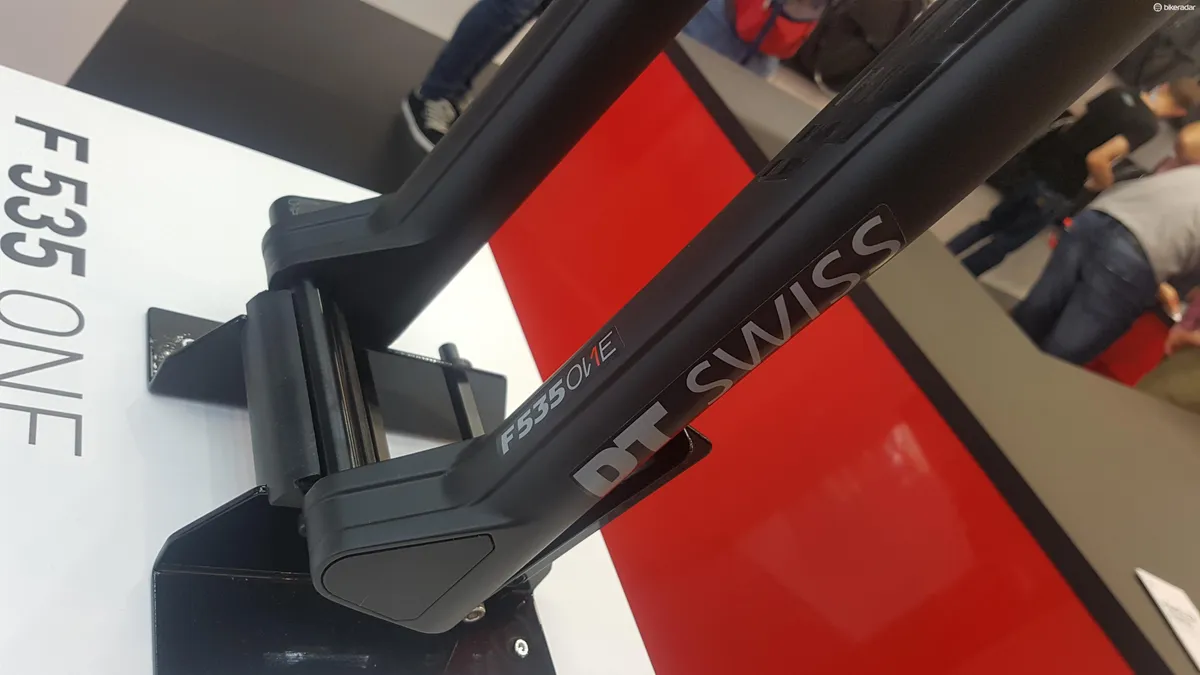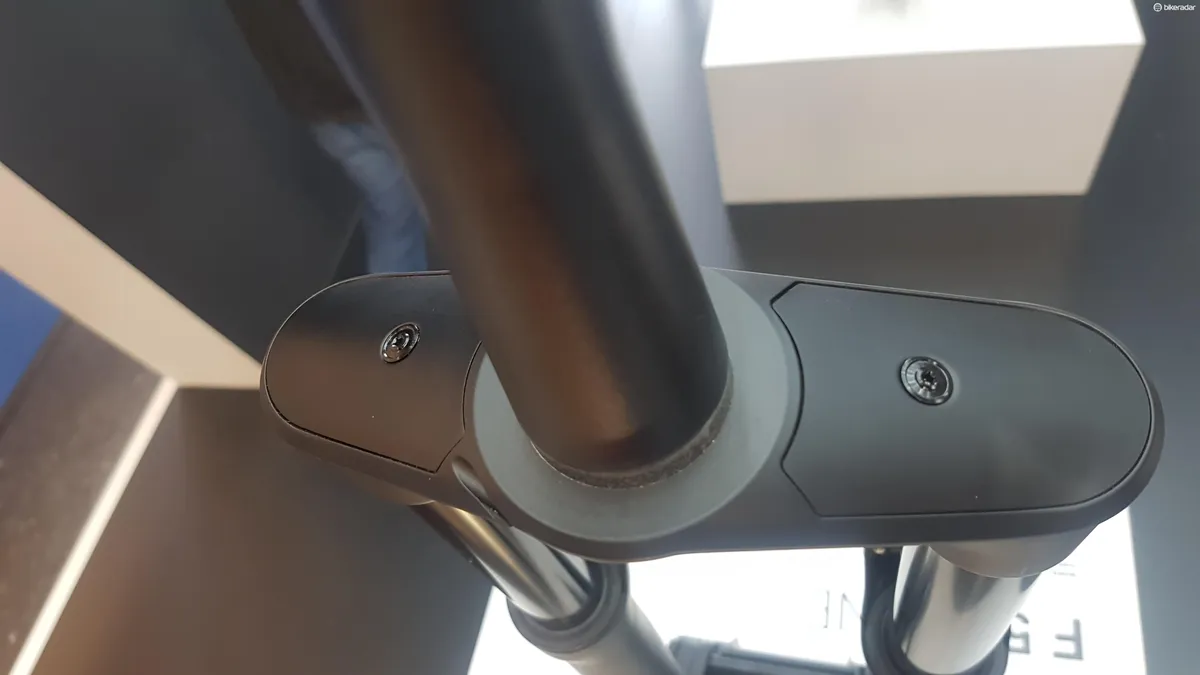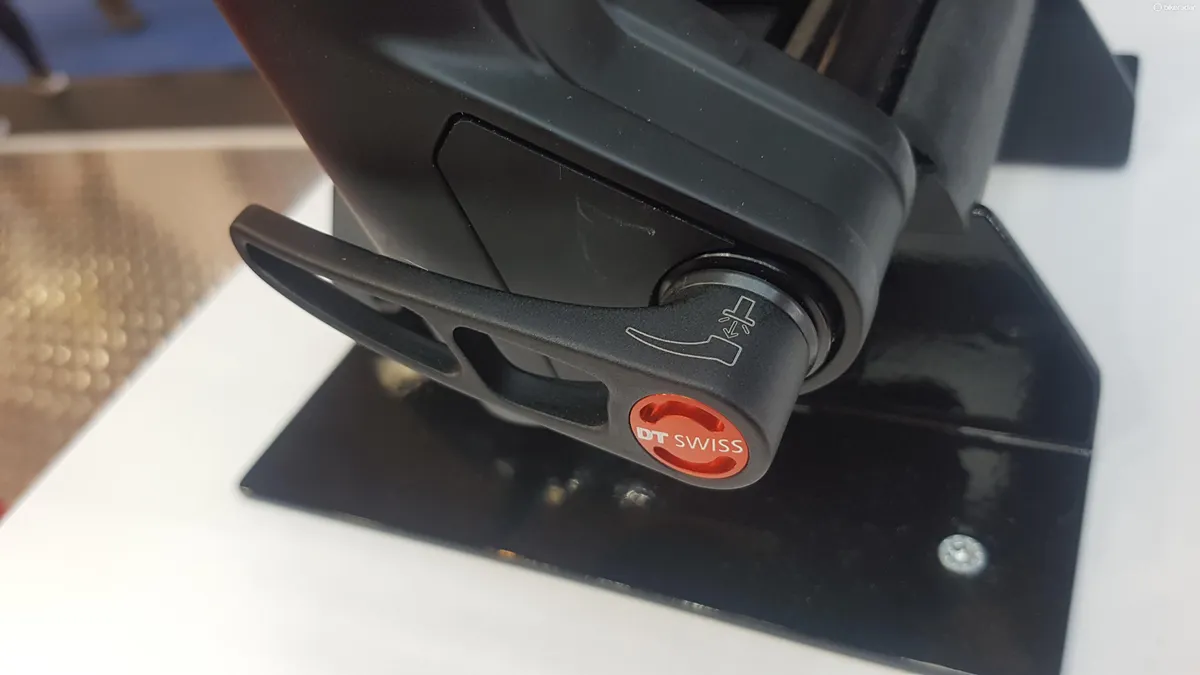It's often difficult to look past RockShox and Fox when it comes to suspension, being the two biggest names in the market and offering brilliant forks. But DT Swiss's latest ground-up designed fork could break that duopoly — if it's as good as it claims.
DT Swiss says all mountain products require a holistic view of mountain biking, demanding performance traits seen in XC, trail, enduro and downhill. And it claims its F 535 ONE fork is "the only one that balances all the demands; efficiency, small bump sensitivity, mid-stroke support and end progression."
That's a pretty big claim, especially since the latest generation of forks, such as the Lyrik and 36, are so damn good.
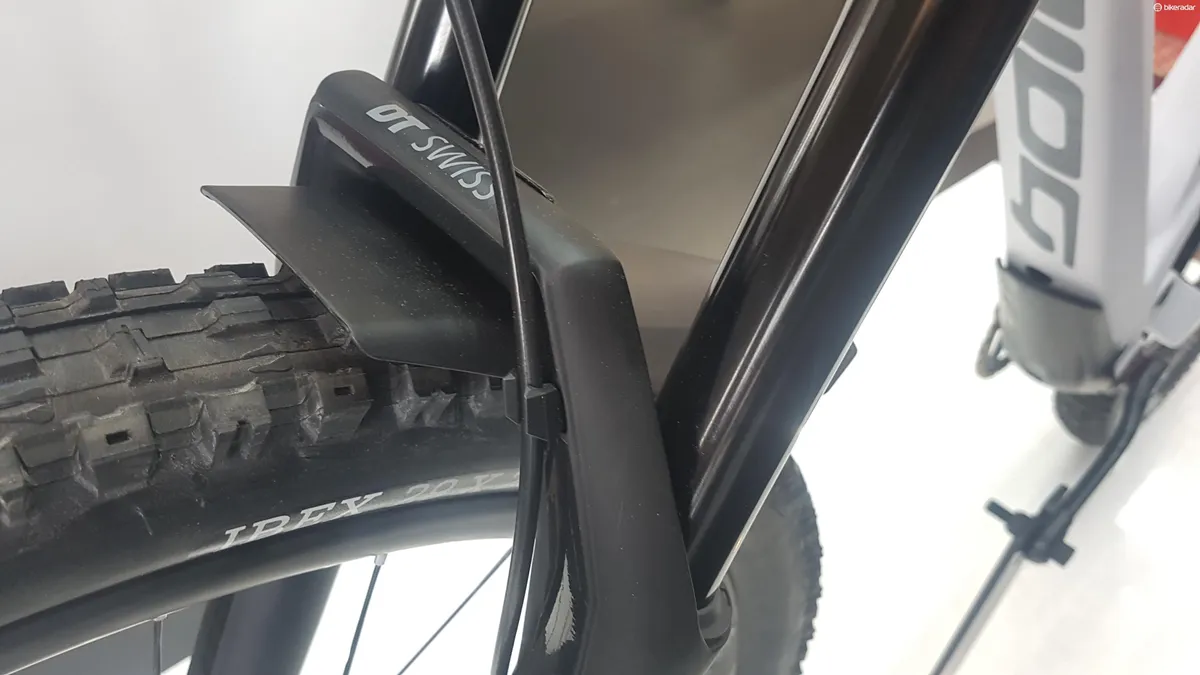
Two springs, fancy dampers
DT Swiss has approached the performance of the fork from two angles: the spring (it's actually two) and the damper.
Most forks use either an air spring (most common, it's light weight and easy to tune) or a coil spring (heavier, but less friction). DT Swiss has combined both, dubbing it COILPAIR, with a small coil spring at the bottom of the fork and then a regular air spring.
DT Swiss says that in the initial part of the travel (the first 30mm or so) the coil spring is compressed — the lack of friction from this spring gives a very sensitive start to the suspension's stroke.
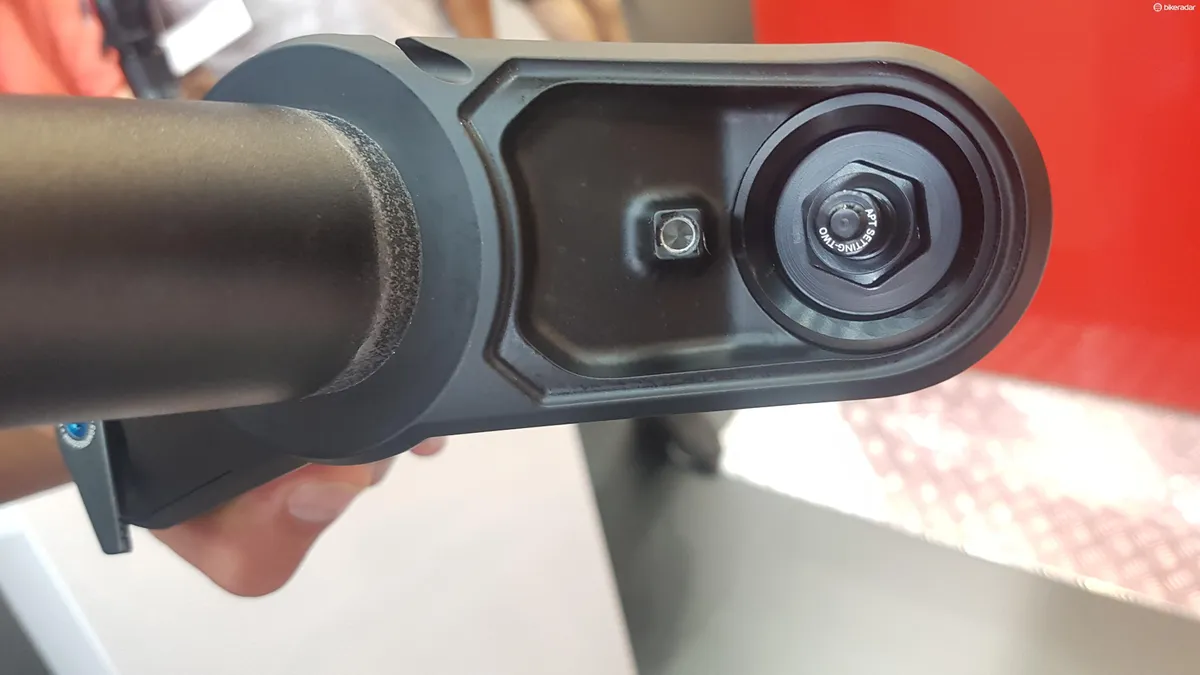
As this spring bottoms out, the air spring is engaged, giving the linear mid-stroke support and then end of travel ramp up that you would expect from an air spring.
As the fork is already moving through its travel by the time the air spring is engaged, the extra friction, which compromises suspension suppleness, isn't an issue, and the benefits of the air spring are then felt.
As per nearly every air spring, you can then tune the volume via APT (Adjustable Progression Tune), basically standard volume spacers.
Controlling the suspension's stroke is the PlushPort damping system.
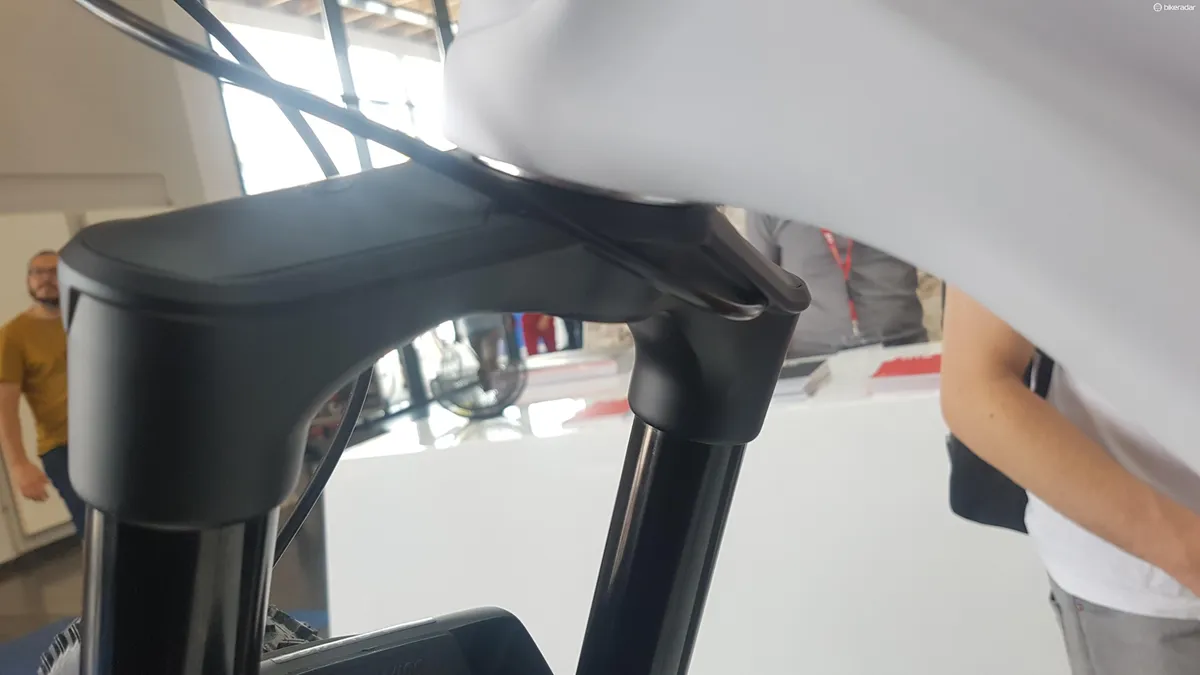
Generally, the speed of the fork going through its travel and the force exerted on the damping circuit determines how open the oil ports are, and thus how easily the fork travels through its travel.
DT Swiss's system adds a mechanical element to this, by varying the port's size with how far through the travel the fork is, using a spring that lets the piston float.
In the initial stroke the ports are fully open, meaning little damping for a plush feel.
In the second third of the travel the ports slowly close, raising the damping rate through the travel. DT Swiss says that this transition is smooth and adds support.
Finally, the ports are closed for full damping, aiding support in the mid stroke and helping prevent bottom out.
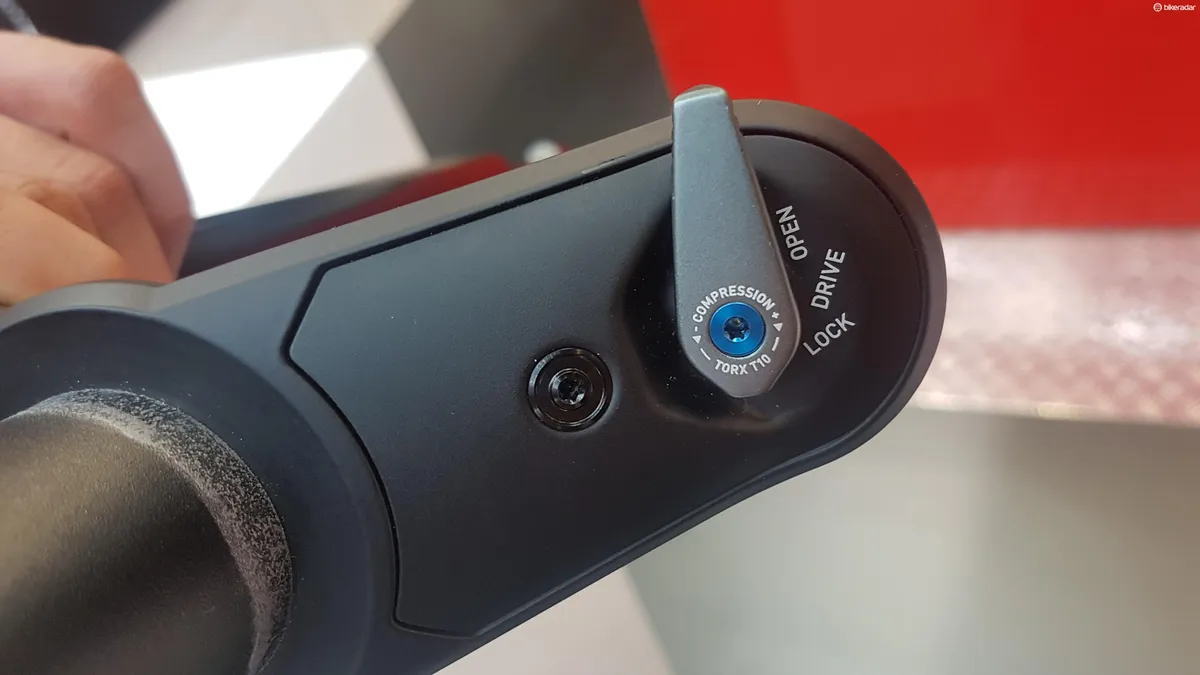
There are three compression modes available, which are adjustable on the fly either via a lever on the top of the damper or using a remote. This is called InControl and gives the usual open, trail and firm modes, with a 10-point adjustment of low-speed compression available in open mode.
It's all in the detail
If the spring and damping claims are as good as DT Swiss says, then it should be a pretty tidy fork. And, I think I can say that the finishing touches on the fork are up there with the best.
DT Swiss's RWS axle is present and correct, which is easy to use. Once tightened you can then re-position the lever to face either up or back, depending on your preference.
The lever portion can be removed, leaving a lighter hex-key operated axle, should you wish. The actual lever also holds a neat T10 torx bit, which can be used to adjust the low-speed compression dial on the damper, and remove the fancy looking covers over the air spring.
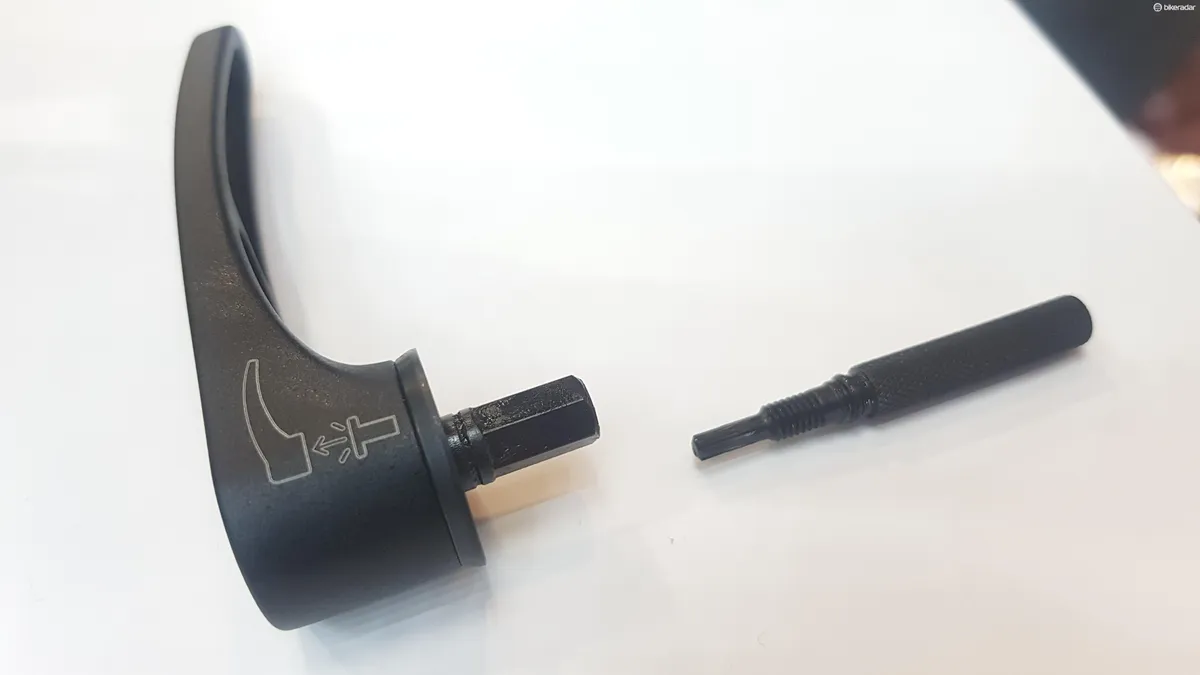
The APT volume spacers are easily accessed from the top of the fork and there's a neat anodised cap, which tells you how many are fitted to the fork (two from standard). If you change the number you can also change the anodised cap so that you're always sure what you have inside.
There's an integrated fender with the fork that looks rather smart too, as well as a cut-away guide for the remote cable, should you use it.
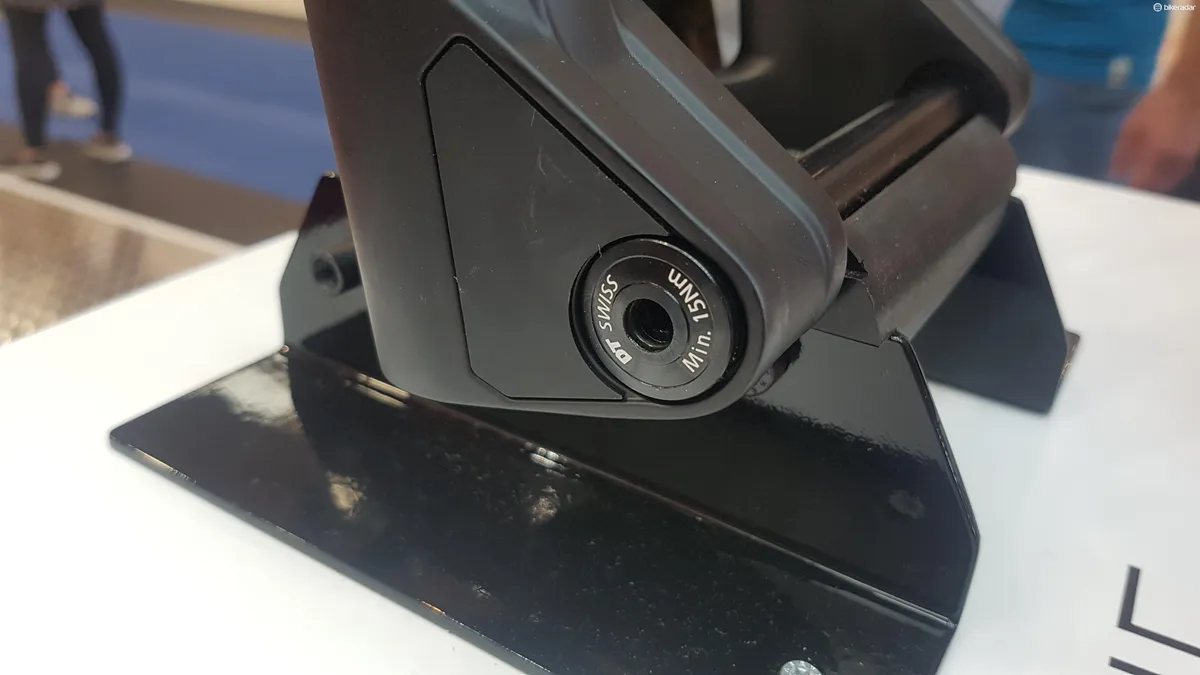
Options and prices
The forks will be available for 27.5in and 29in/plus, with 130 to 160mm options in both wheel sizes. Claimed weights start at 2,020g.
In the US they'll cost $1,551 and in the EU it'll be €1,149.
As you can expect, I'm very keen to give this fork a go. The twin spring system sounds intriguing, while its approach to damping also seems to make some sense.
DT Swiss has made some big claims, how well it works in the real world is yet to be tested.
